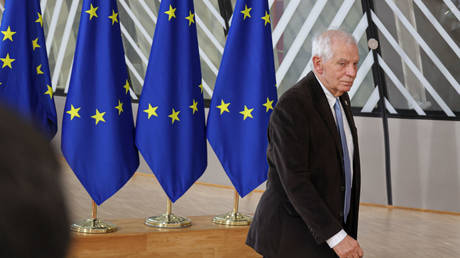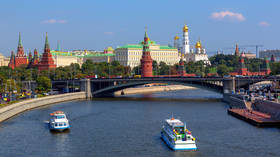EU foreign ministers are not ready to agree a new package of anti-Russian sanctions, the bloc’s foreign policy chief, Josep Borrell, told reporters on Monday as he arrived for a meeting in Luxembourg.
Asked whether the EU would impose sanctions on Russian nuclear energy, the diplomat replied that the bloc is not in a position to complete a new package of measures. “We will continue discussions,” Borrell added.
The statement comes as the 27-nation bloc compiles its latest round of sanctions against Moscow, having already imposed ten packages since 2014 in response to the crisis in Ukraine.
According to Bloomberg, the EU is planning to prohibit the transit of certain goods through Russia in its new round of measures, including technological goods and certain types of vehicles. It is also aiming to close any loopholes being used to evade existing sanctions.
In addition to a transit ban, the EU could target ships that do not turn on their navigation systems as a potential way to dodge sanctions.
The next package is also expected to feature around 30 new listings and further restrictions on Russian firms and entities, including state-run nuclear power corporation Rosatom, Bloomberg wrote.
However, there have been reports that the EU has exhausted its options for further economic restrictions against Russia, and that new measures are likely to be limited to expanding the list of individuals subject to asset freezes and travel bans.
Last week, an unnamed EU official told the Financial Times: “We are done. If we do more sanctions, there will be more exemptions than measures.”
Russian Finance Minister Anton Siluanov claimed on Monday that the EU had run out of measures to target Moscow and “no longer knows what to do to hurt Russia.”
“They say that they’ll ban exports to our country – okay. It isn’t as if apart from those countries that impose restrictions, there are no others. We will buy the same goods, and perhaps better quality, from friendly states, if necessary,” Siluanov said. He insisted that Russia is fully committed to producing its own versions of vital products.
For more stories on economy & finance visit RT’s business section






